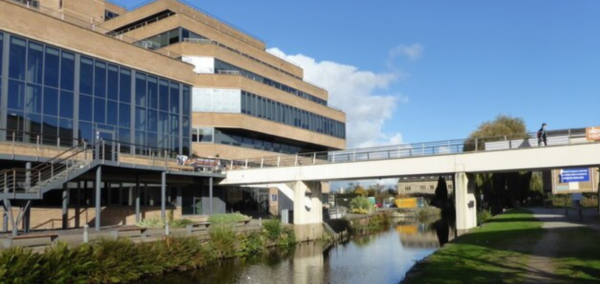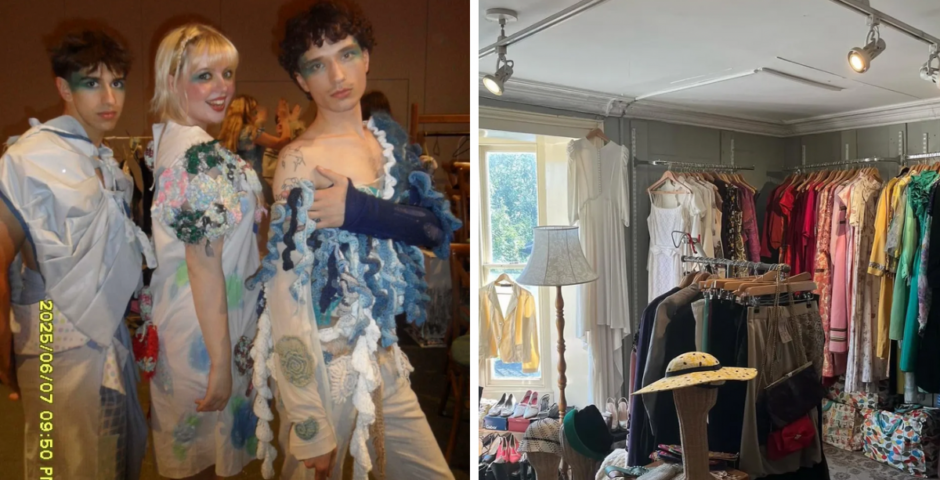
Slow fashion at Durham Uni: Curating a perfectly personalised, sustainable wardrobe
A holistic framework to achieving an environmentally friendly closet – all while on a student budget
Fast fashion is forever absorbing the planet’s capacity for space, often encouraging a disposal culture at the expense of recycling pre-worn goods to be replenished and reused.
So, here is the ultimate framework for achieving a perfectly personalised wardrobe at Durham university (on a budget). Rather than simply falling into consumerism and so called “micro-trends”, it’s about finding unique pieces that really speak to you.
Practicing sustainability at Durham
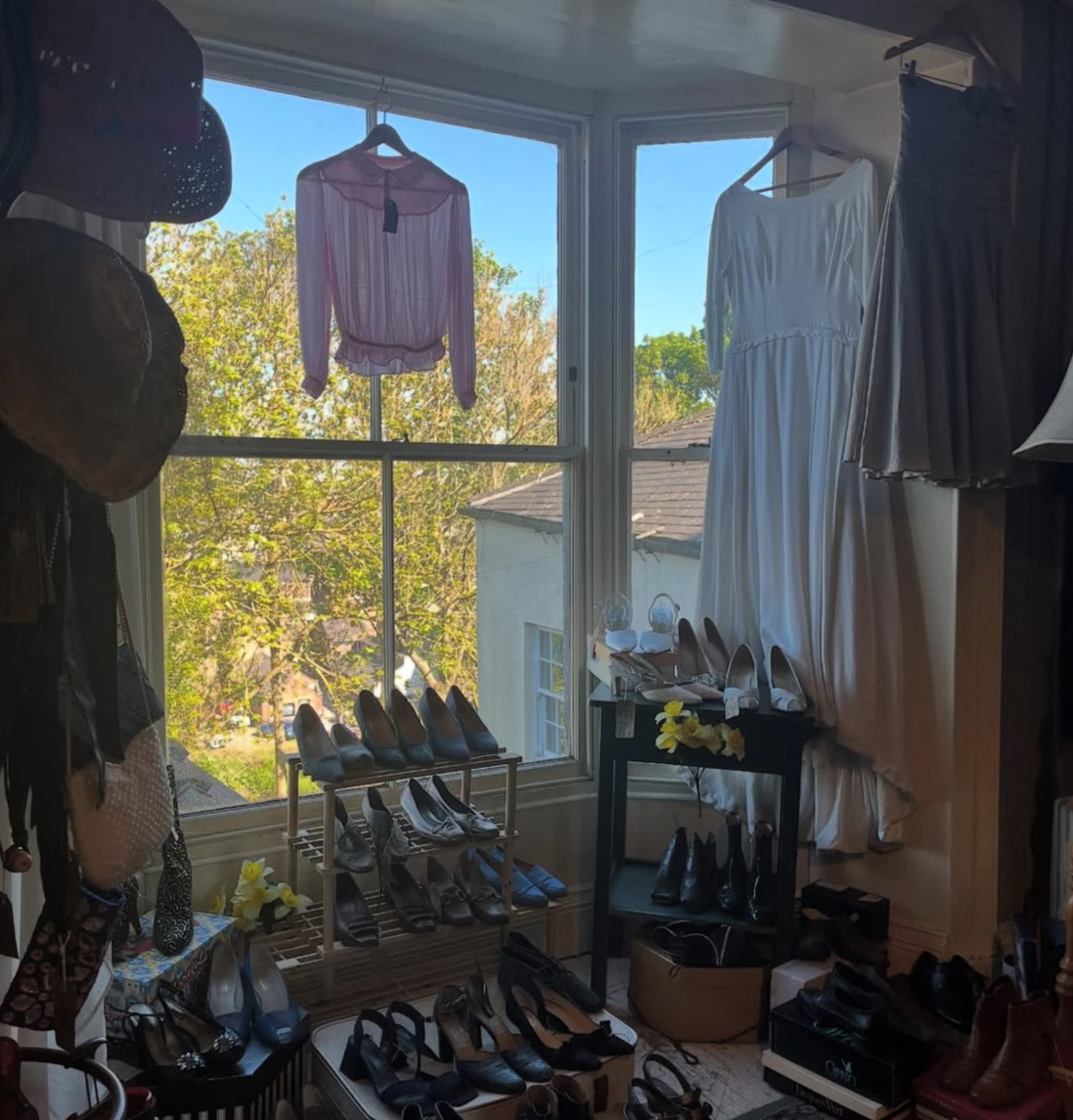
University takes a financial toll on many, leading students to seek cheaper alternatives when building a fashionable closet. Unfortunately, this often encourages fast fashion purchases in order to keep costs down and style up. However, I propose that shopping sustainably can, in fact, be cheaper, and often much more personalised, while at the same time supporting the local economy and charities such as St Luke’s and the British Red Cross.
So, instead of indulging in fast fashion retail therapy at shops like Shein, Durham charity shops, vintage clothes sales/warehouses, car boot sales, and second-hand fashion sites like Vinted, Depop, and eBay can provide the same quality of fashion. You may even find the very same pieces, but with a much smaller environmental footprint!
Your Durham charity shops
And if you’re unsure of where to go, here’s a comprehensive rundown of Durham’s charity shops.
British Heart Foundation (North Road) has great “vintage” rails, and you can often find unique pieces ranging from £10-£15. Although it’s slightly on the expensive side for a charity shop, it’s worth it in terms of its style value.
If you’re more of a bookworm, Oxfam (Elvet Bridge) has a brilliant array of books to expand your reading list. It’s a much cheaper alternative to Waterstones, too. Here, you can find older, more historical books that feel slightly antiquated.
For fun jewellery pieces and an extensive selection of shoes, head to The Children’s Society (North Road).
The famous £1 charity shop is a must, too. Yes, you heard it; everything is a single pound here, no matter the item, so get yourself to Oak Tree Animals Charity for a true steal.
Other options include Salvation Army and Scope (both on North Road) and St Cuthbert’s Hospice (Claypath).
How to be “charitable” while at university
I would recommend every single charity shop here, particularly if you find yourself drawn to vintage or unique pieces which provide the perfect fashion statement to complete your outfits. Personally, I have found vintage bags and countless items of clothes as well as formal (and black-tie) dresses, for extremely discounted prices in contrast to those on the high street.
Most importantly, it feels great to support ethical business practices rather than aiding a flawed system designed to promote consumerism at the expense of its environmental effects. It is the most humanitarian approach, and helps to save generations lost to this vicious cycle of waste disposal.
What it means to be charitable is ultimately debatable, and comes in many forms. But for Durham students specifically, this could mean supporting slow fashion through charity shopping, participating in sustainability projects like DUCFS, Trashion, Redress and the Sustainable Fashion Society, for example.
Charity fashion shows
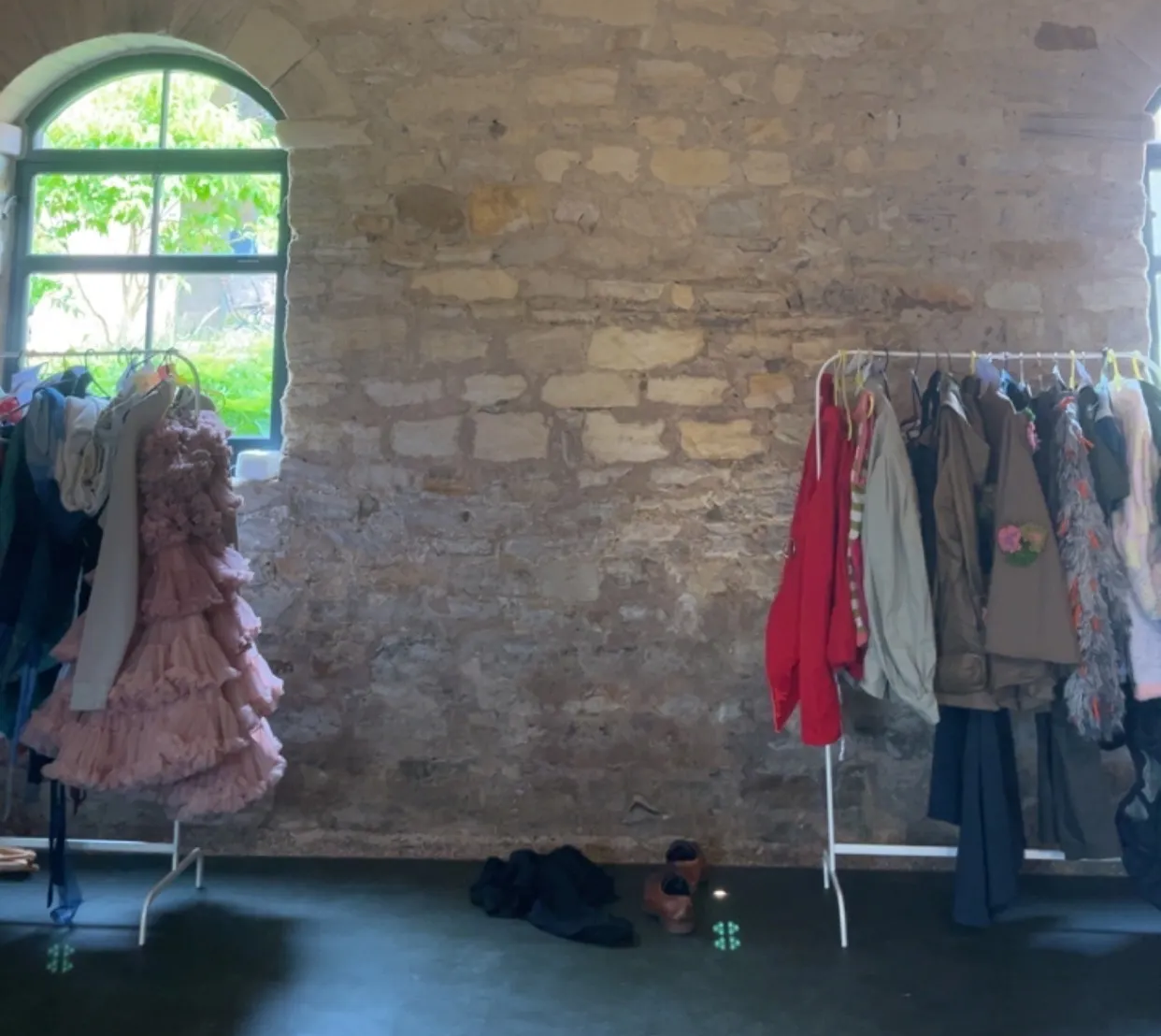
Charity Fashion shows are a brilliant way to give back, whether you model, take part in behind-the-scenes work on the exec, or simply show support through donations and sitting in the audience. Each are invaluable in their commitment to making a better world focused on sustainability and environmental awareness against pollution in the fashion industry.
Trashion

Having modelled for Trashion this year, I can speak confidently of the benefits of such a charitable and meaningful cause. It certainly made me feel so much more connected to my student community, giving back by raising £250 for the Pareto Eco Project and providing a platform centred on a thrifted mentality – slow fashion is the way forward.
Taking part in shows like these therefore encourages students to really think about the implications of their purchases, redirecting them towards sustainable, and often “cooler” alternatives which are thrifty, economical and up-to-the-minute while avoiding the perils of fast fashion.
Student life and fashion
Durham is renowned for its highbrow events, but this can result in pressure to buy new outfits for socials, balls, formals, balls, etc. To avoid any financial strain, sustainable substitutes ease this expectation, widening accessibility. These may include: Clothing rentals; charity shopping; swapping with friends (a shared wardrobe, if you will…); and upcycling or repairing items when broken (rather than simply binning and replacing)
Vinted, Depop and eBay

Student accommodation is often a little cramped, and students are renowned for overpacking or slightly overestimating the quantity of clothes they’ll need, and eventually running out of space. Instead of simply discarding clothes you no longer want, consider listing them on resale apps like Vinted, Depop or eBay. These apps are also perfect for online shopping while on a budget – items go for as little as £1 on Vinted, so look out for bargains (and don’t be afraid to bid or offer a lower price as it it might be your lucky day).
It’s also a great way to build up a little extra cash while protecting the environment and reducing the amount of clothes produced. After all, the planet has enough clothes to provide for the next 6 generations, so recycling is more important than ever before to prevent a rise of such a statistic. Such a productive side hustle, if you will! The outfit in the photo below was entirely thrifted, including all accessories (yes, the bag too).
Redress
This is a student-led programme which rents out formal dresses at inexpensive prices to break the cycle of excessive buying. Durham is renowned for its formal events and endless black-tie nights, so alternatives like these help to keep the costs down and fashion high!
Aiding the local economy
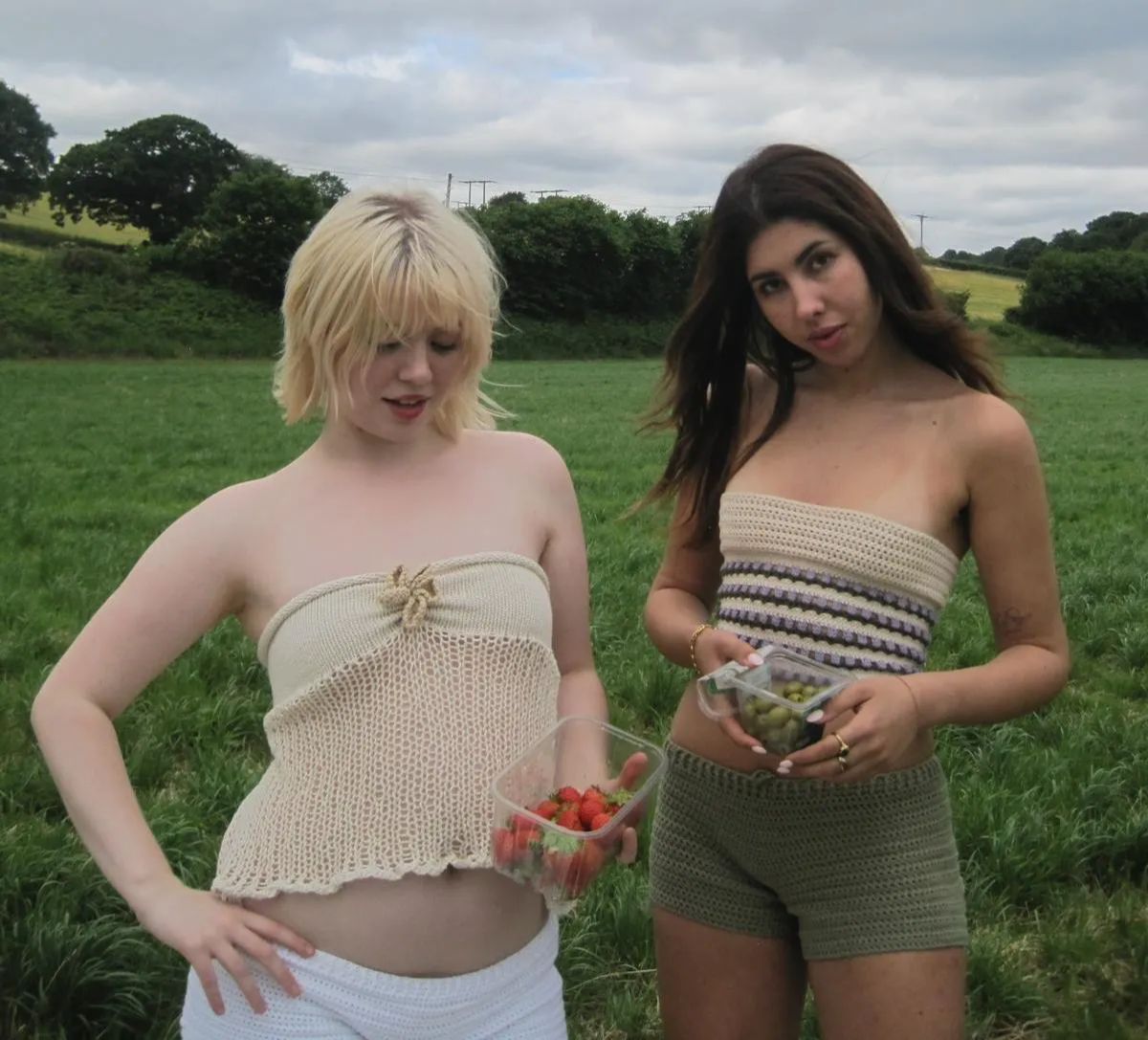
Students pictured in crochet MadeByNoli sets, a student brand
Local initiatives, shops and markets can help boost the local economy, such as clothing swaps as mentioned above, repair workshops (like those in the market) and fashion societies too.
Supporting local brands and artisans promoting eco-consciousness are brilliant ways to expand this sensitivity and awareness in building a more sustainable world. It has to start small, and it could quite literally be a charity shop purchase, or some local produce instead of those found on the high street.
Circle Vintage
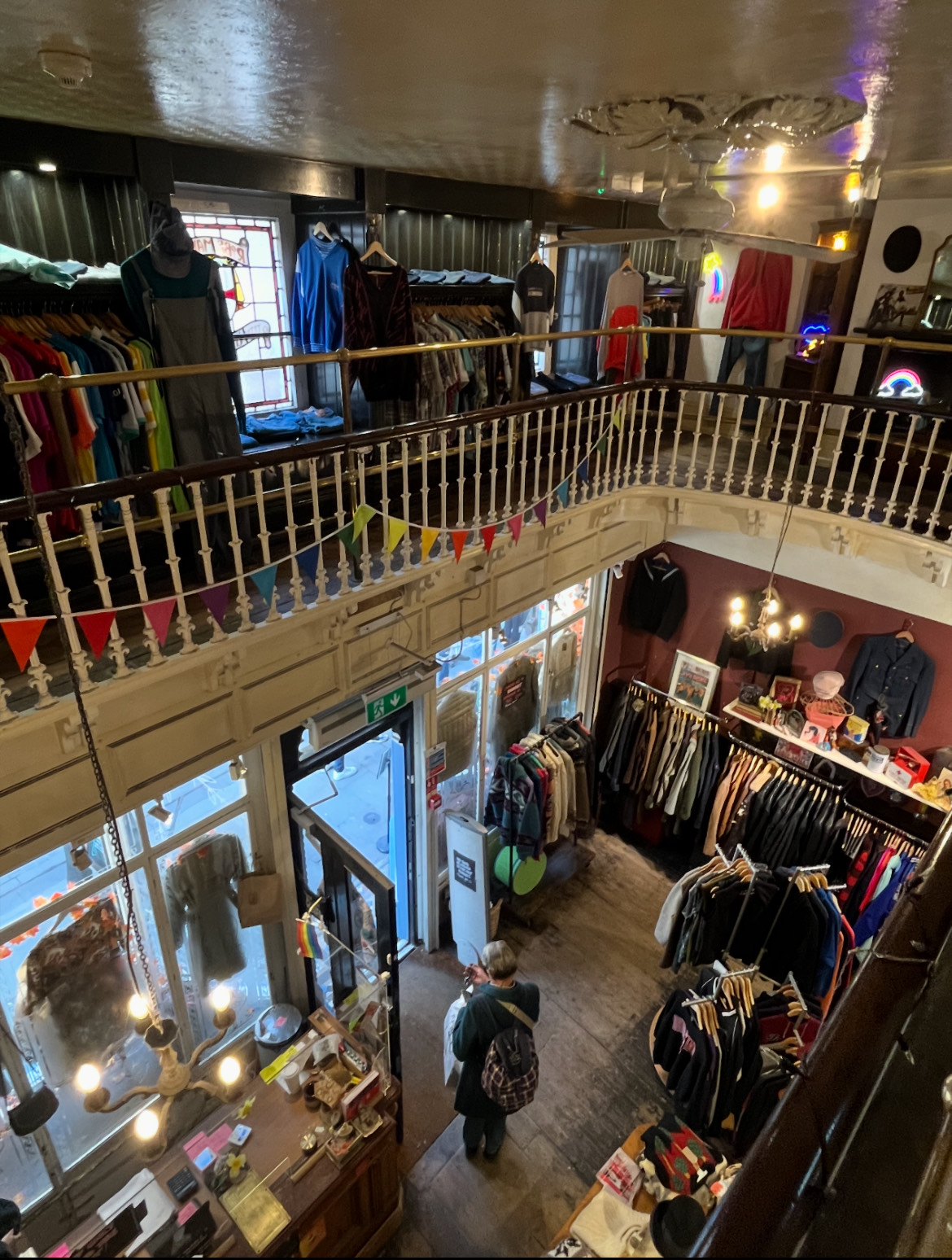
While slightly more expensive, quality vintage items are often justified in their high value, providing timeless pieces which keep for decades. Supporting local businesses like these allow them to thrive, and boosts the local economy while encouraging us to think about the ethical choices we make when thinking stylistically.
Quirkshop UK
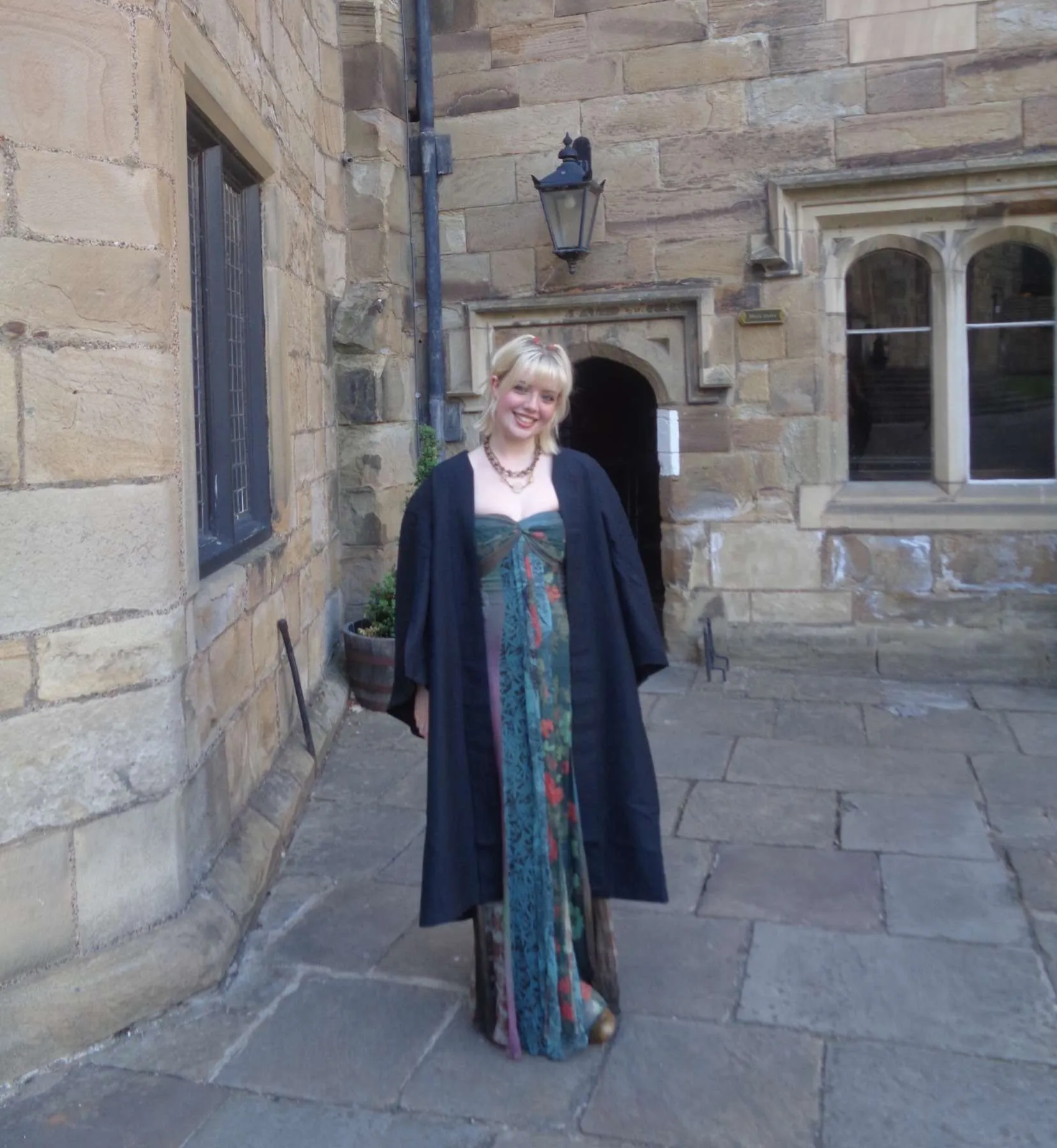
Pictured in a vintage Monsoon dress from a small business at a Castle formal
Based in the Market Hall, this is an excellent way to support slow fashion. From vintage dresses to quirky finds like blouses or shirts, this is the perfect way to build a sustainable and ethical wardrobe. They even collaborate with colleges for balls, such as Halfway Hall for Castle, offering a discount for University College students.
Some key takeaways
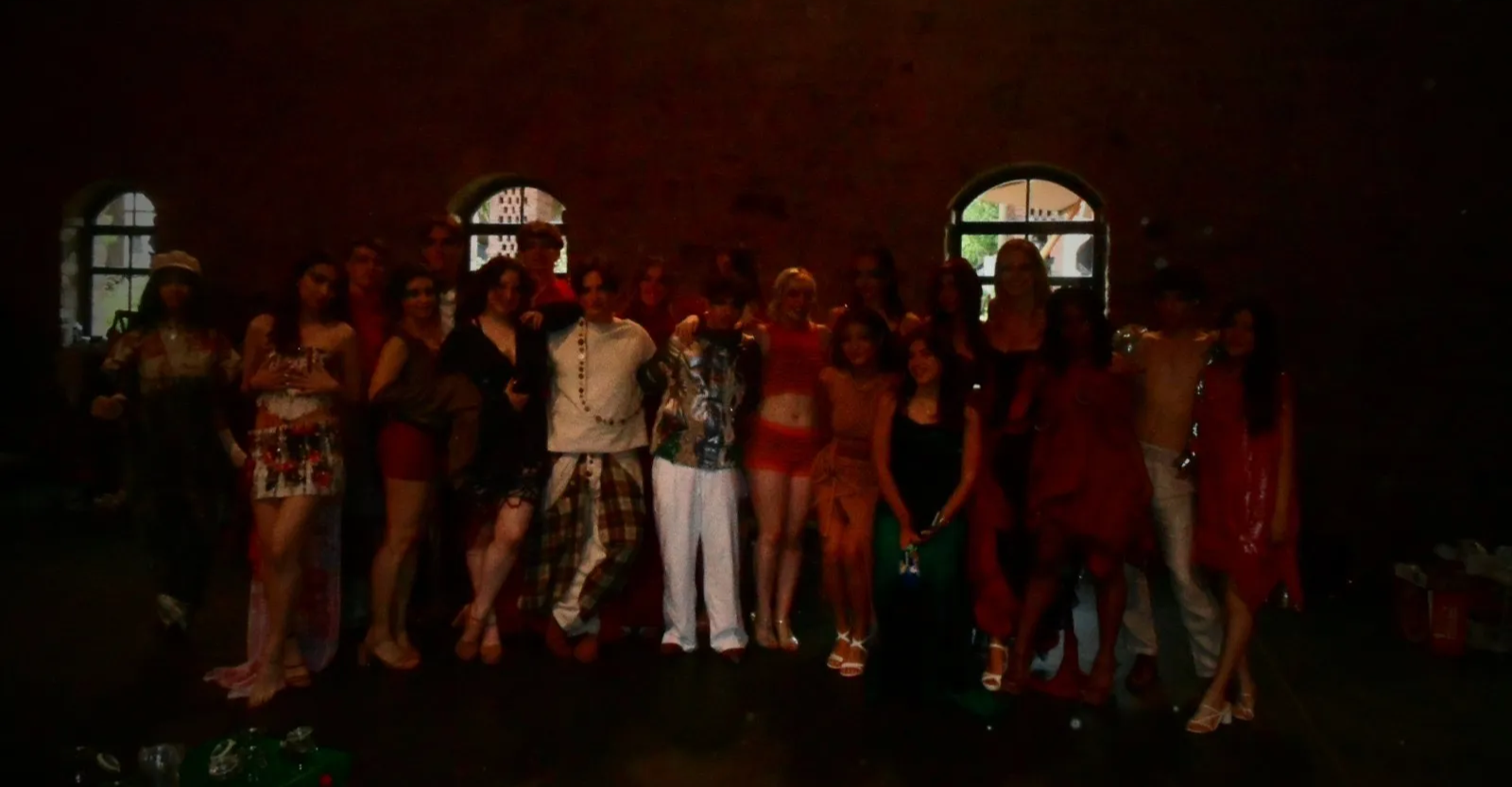
Focus on versatility and quality – be mindful when shopping!
If you can, opt for second-hand first – this isn’t aways possible, but make a conscious effort to seek out thrifty alternatives when affordable and available.
Support ethical brands, if budgets allow, and learn to repair and take of your clothes. Don’t just discard them when they get “boring”. There’s always a way to restyle them into something fun, sell them, or even swap.
For more of the latest news, guides, gossip, and memes, follow The Durham Tab on Instagram, TikTok, and Facebook.
















